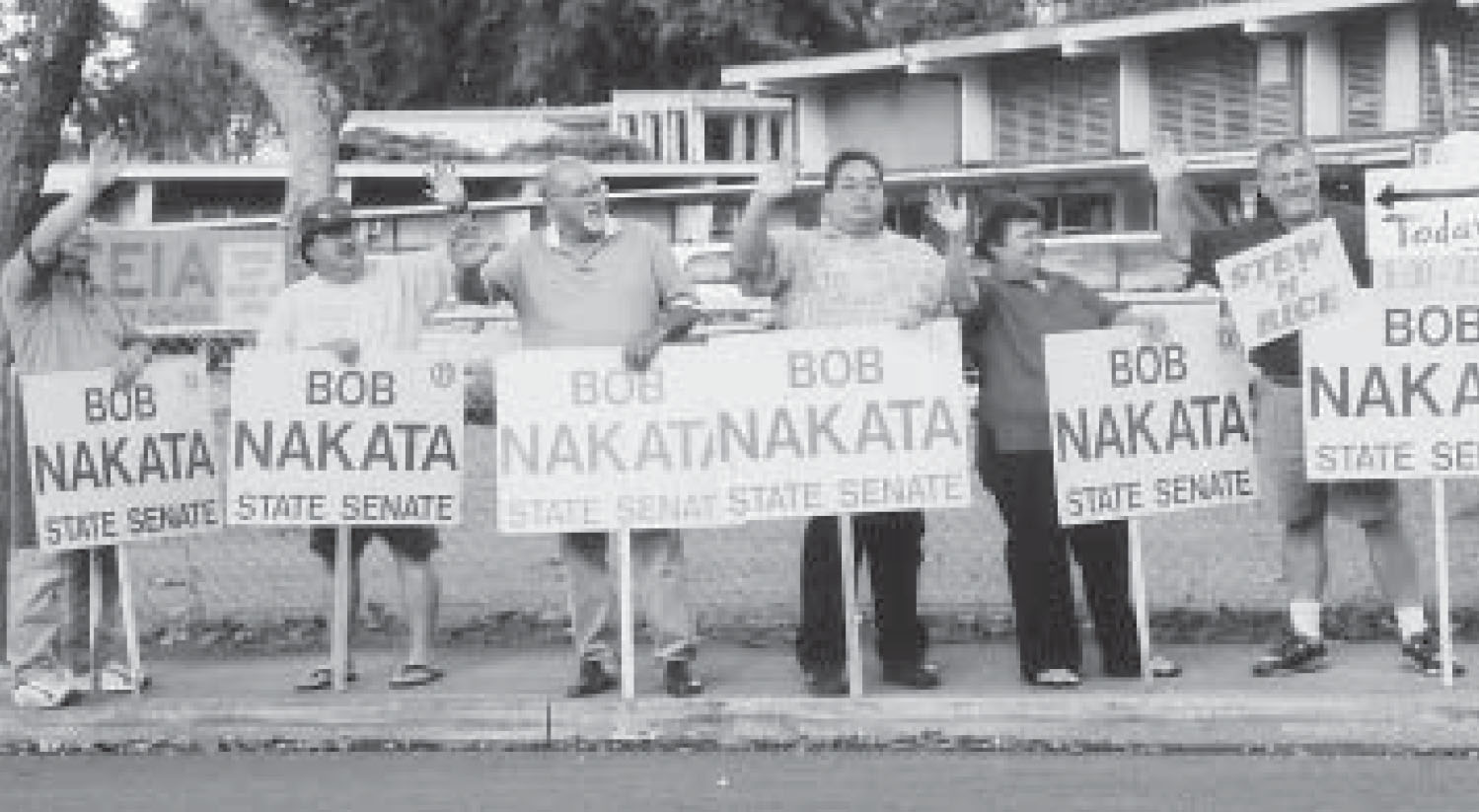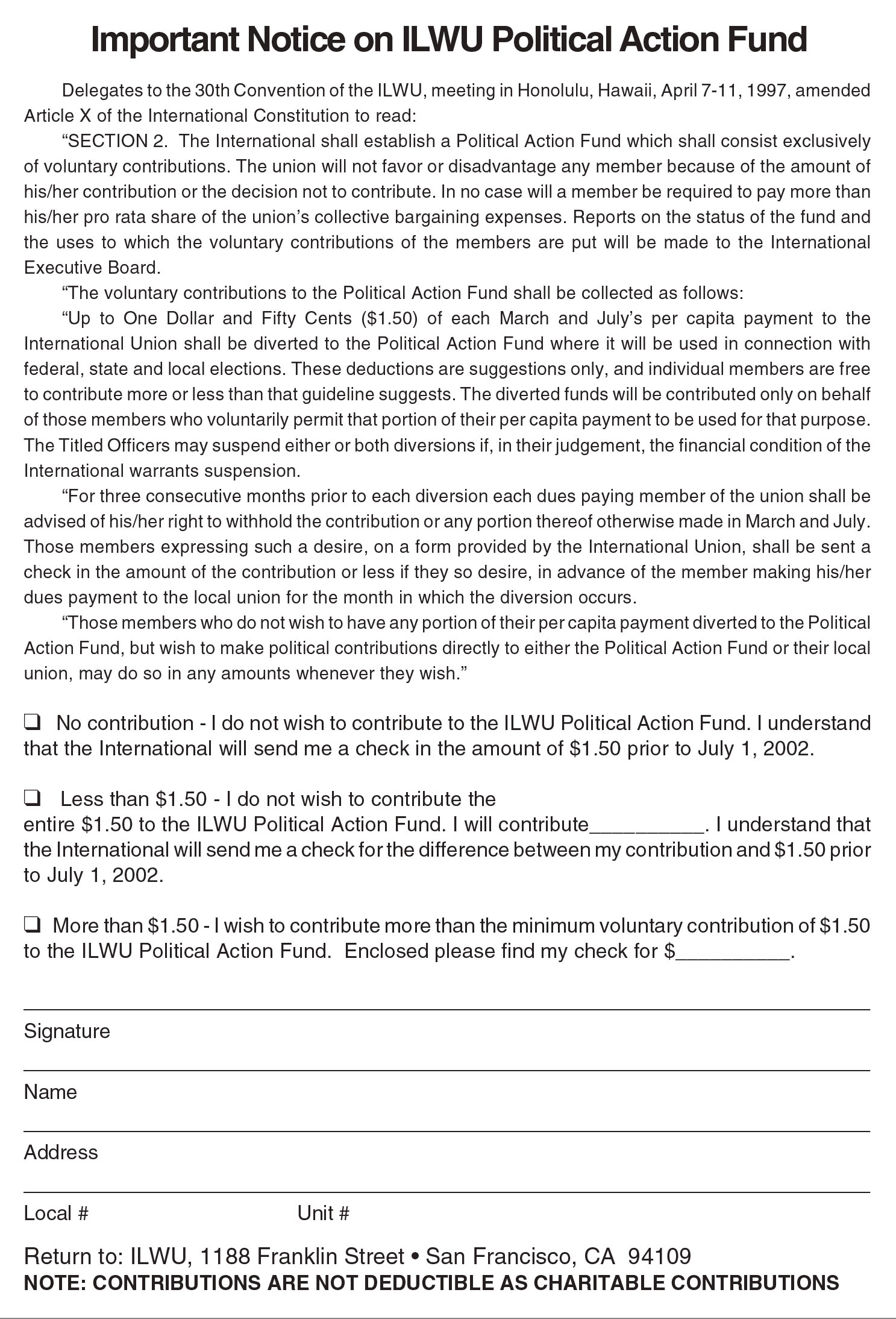Provides Funds for Worker Training.
The Employment and Training Fund was set to expire at the end of 2002, but this bill makes the program permanent by assessing employers 0.01% of payroll which goes into the fund. It also requires employers who use these training programs to contribute 50% of the cost of the assistance in cash or in-kind contribution.
US employers spend less than 2% of their payroll on training and most of this is for managerial and supervisory employees. Regular workers receive very little training and what training they do receive is mostly informal on-the-job-training. In 1992 the ILWU supported the creation of the Employment Training Fund to provide more formal training for workers at all levels.
In its first year of operation in 1992, only 630 people took advantage of the free training offered by the State’s Employment Training Fund (ETF). Last year, that number mushroomed to 18,576, a phenomenal increase that confirms the need and demand for worker training.
Employers can refer their employees to existing short-term, noncredit training courses such as those offered at the University of Hawaii Community Colleges and other ETF approved public and private training vendors. Training courses that are available include, but are not limited to: computer, business, management, health, medical training, or soft skills training. The program is open to all within a company.
Non-profit agencies and even unions like the ILWU are eligible to use ETF training programs. The ILWU has used the ETF to upgrade the skills of its office staff and business agents. Most of the classes taken were computer related. Two Oahu business agents took the introductory class on Windows 98 from the Computer Training Academy. Tuition for the one day class cost $109 which was paid by the ETF.
The ETF also develops specific training programs. A program for health care workers includes: personal safety (dealing with infectious disease and bloodborne pathogens); violence prevention; teamwork; leadership; and problem solving. A program for agricultural workers includes: growing and caring for seeds; planting trees; operating heavy equipment; preparing sites; logging; and maintaining roads. Certification training for landscape technicians includes: plant identification; irrigation maintenance; seed and sod installation; sprayer calibration; water conservation; and environmental protection. These programs helped many laid-off ILWU sugar workers on the Big Island train for new jobs.
Over the past ten years, the ETF provided a total of 31,323 training programs, most of which were in use of computers and computer software. Not surprisingly, small businesses with 10 or less employees were the biggest users of the training fund.
ILWU members can take advantage of the ETF to get free training to improve their skills on the job. For more information on the classes available, the requirements, and how to apply for these classes, go to the ETF website at: http://dlir.state.hi.us/wdd/etf/ micro.htm. Workers need to be referred by their employers, but this can be as simple as having your employer sign the application form supplied by the ETF.
ACT 43 (SB 2787)
Protect Workers Under Wage and Hours.
Increases the monthly guaranteed compensation required to exempt an individual from the protection of minimum wage and overtime requirements under the Hawaii Wage and Hour Law. Under the previous law, workers who were guaranteed a monthly wage of $1,250 or more were not protected under the Hawaii Wage and Hour Law. The new law increases the amount to $2,000 which would protect more low-wage workers. The ILWU supported this bill.

Oahu Division members sign-wave for windward area Senator Bob Nakata, who heads the Senate Labor Committee. (L-r) Tyrone Tahara, Wallace Abe, Calvin Werner, Brian Tanaka, Sharon Basmayor and Richard Desmond.

